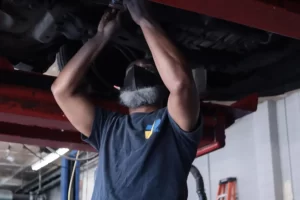A trade school offers various training and certification programs that last 6 months to two years or fewer. In the opinion of many students, these schools provide better instruction and more direct job options in a really small timeframe when compared to colleges. The value of trade schools is often derived from how they are better than four-year bachelor’s programs. This article will describe the top advantages of attending a career college or a trade school.
Trade school programs mostly prioritize practical training that is required on the job. Numerous specialized skills and professions are typically covered in the curriculum of the most significant technical schools. Construction, electrical work, and practical nursing are some of the professions that come under the spectrum of a trade school. In some of these fields, students can begin their training after acquiring the foundational information/education needed for employment. Many of these fields are in high demand, and joining them pays well.
For numerous reasons, trade schools are more beneficial than four-year bachelor’s degrees. These practical courses are typically less expensive, shorter, and have less stringent admission standards than bachelor’s degrees. Some of the other benefits are:
Skilled trades will always be in demand. The reason is even if technology grows and machinery does the work, the requirement of people to manage it will increase. So, vocational colleges offer programs for industries with a never-ending demand for a workforce vital to career in trades like welding, HVAC, and electricity industries always need trained workers. Additionally, because of the increasing demand for medical services, occupations in the healthcare industry are among those with the fastest growth rates. After you graduate, you won’t need to worry about what to do with your training because you’ll be prepared to enter the workforce.
There are some things, actually many things, that you simply cannot learn from a book or while sitting in a classroom. You must learn how to perform needle sticks or take blood pressure by reading about the procedures if you are training to become a licensed vocational nurse, for instance. Or, if you want to become a welder, you need to have experience in using a torch to pass your certification exams. Because of this, learning trades from schools incorporate hands-on instruction and real-world experience in addition to regular testing and homework. Many programs also provide externships so you can gain real-world experience.

Trade programs and vocational institutions maintain their central aim to assist students to find employment. As a result, many include career services sections to offer opportunities and tools when it’s time for you to start your job hunt. So that they are continually aware of who is looking for qualified graduates. Staff and faculty members frequently build contacts with local businesses, organizations, and employers. The staff can help you, from honing your interviewing techniques to keeping track of your professional development.
Traditional universities frequently have large lecture halls with hundreds of students and instructors you’d hardly recognize strolling by on the street, let alone gain any genuine instruction from. On the other hand, career colleges maintain small class sizes to give you more chances to interact with your instructor and peers. As you graduate, it enables you to forge connections and establish a community.
Due to prerequisites and courses that you may not even need, traditional university education takes four or more years from your first day to graduation. Contrarily, the best trade schools focus on the abilities that will help you the most in your future employment and provide practical instruction in those areas. Since our goal is to prepare you for the future, you desire rather than wasting your time on subjects you don’t have to use. It’s clear from the name of our institution: “career college.”

According to the philosophy of career schools, everyone should be given a chance to prepare for a successful career. Trade schools try to make applying a simple, accessible experience, in contrast to the application process for many regular colleges, which entails pages of hoops to jump through. They frequently don’t demand prior courses or SAT scores, allowing students to enter without a high school diploma.
The prohibitive fees associated with acquiring a bachelor’s degree are one of the reasons why many students choose not to enroll in a typical four-year university. Moving on to the next stage of your life may be more difficult if you graduate with negative personal finances. Because skilled trade careers frequently provide programs that can be completed in a much shorter time, they can often lead to less debt, less financial strain, and a stronger start to your career. Plus, a lot of career colleges assist with financial assistance.
Read More